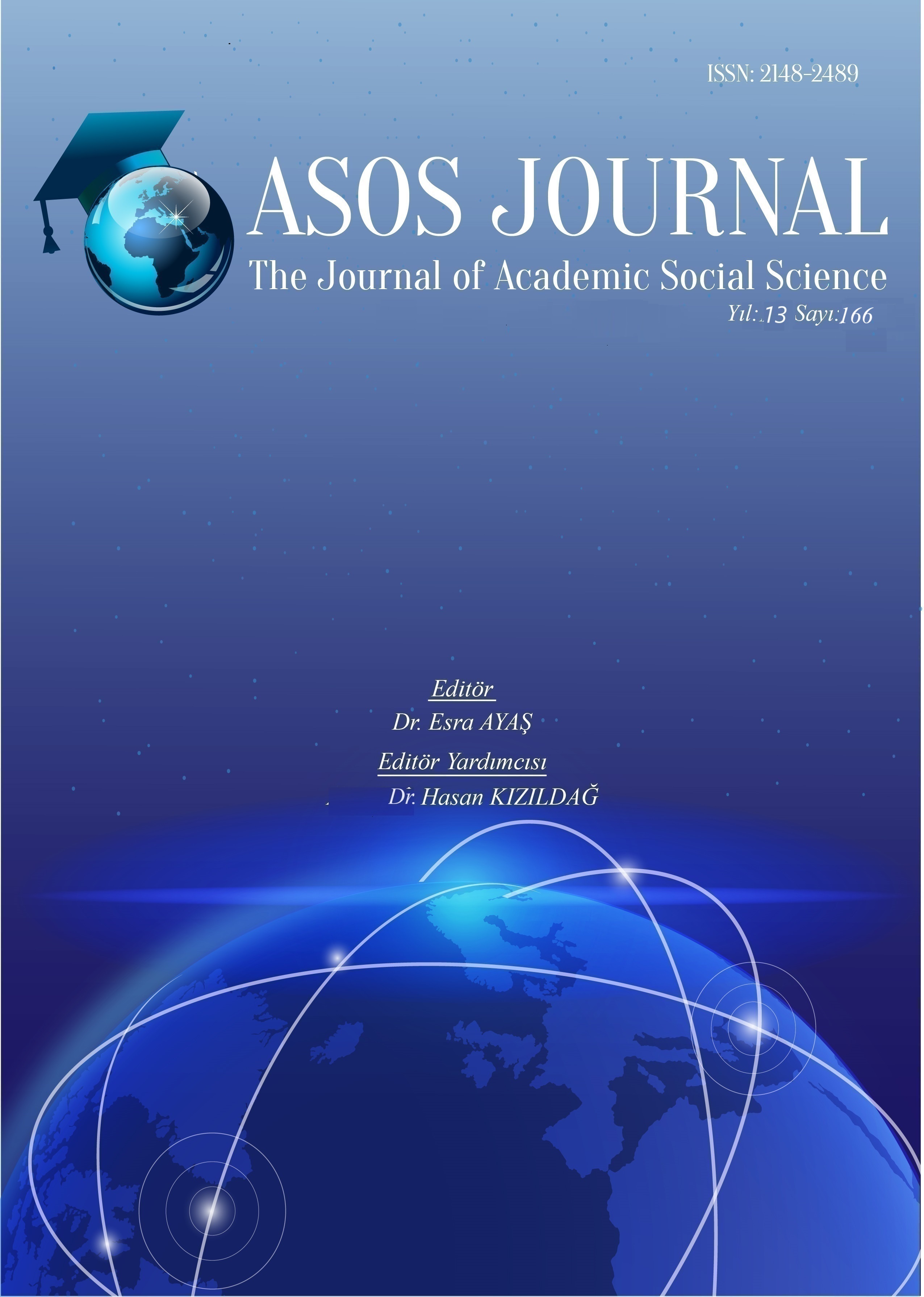TÜRKMENİSTAN HAYATIN TEMELLERİ DERSİ ÖĞRETİM PROGRAMI İLE TÜRKİYE HAYAT BİLGİSİ DERSİ ÖĞRETİM PROGRAMININ KARŞILAŞTIRILMASI
Author :
Abstract
Bu çalışmada Türkmenistan Hayatın Temelleri dersi 2022 öğretim programı ile Türkiye Hayat Bilgisi dersi 2024 öğretim programının karşılaştırılması amaçlanmıştır. Çalışmada nitel yöntem kullanılmıştır. Çalışmada Öğretim programlarının genel yapısına, amaç ve kazanımlarına, içeriklerine, öğrenme-öğretme süreçlerine, ölçme ve değerlendirme süreçlerindeki benzerliklere ve farklılıklara odaklanılmıştır. Araştırmanın bulguları, öğretim programlarında temel amaç ve yaklaşımlara, programının uygulanmasına ilişkin esaslara, ölçme ve değerlendirmeye, sınıf seviyelerine göre kazanımlara yer verilmesi benzerlik gösterirken, Türkiye’nin Hayat Bilgisi dersi öğretim programında öğrenme- öğretme yaşantılarına, ders kitaplarının ebatlarına, programlar arası bileşenlerine, içerik çerçevesine, farklılaştırmaya ve öğretim programının genel yapısına yer verilirken, Türkmenistan’ın Hayatın Temelleri dersi öğretim programında genel amaçlar yerine açıklama mektubuna yer verilmektedir, ama ders kitaplarının ebatlarına yer verilmemektedir. Türkiye’nin Hayat Bilgisi dersi öğretim programının amacı, bireylerin kendilerini ve çevrelerini tanımalarını, aile ve toplumsal değerleri özümsemelerini ve millî bilince sahip olmalarını içermektedir. Türkmenistan’ın Hayatın Temelleri dersi öğretim programı ise, sağlıklı yaşam tarzları ve güvenli yaşamın temelleri konusunda bilgi ve anlayış sağlamaya odaklanmıştır. Türkiye’de Hayat Bilgisi dersi öğretim programındaki konular genel başlık altında, altı ünite olarak belirlenirken, Türkmenistan’da Hayatın Temelleri dersi öğretim programı ise konu odaklı ve her sınıf için ayrı konulara yer verilmiştir. Türkiye'de Hayat Bilgisi dersi öğretim programında öğrenci merkezli bir öğretim yaklaşımı benimsenirken, Türkmenistan'da Hayatın Temelleri dersi öğretim programında daha çok yaş ve fiziksel gelişime uygun bir sıralama tercih edilmektedir. Türkiye'de hayat Bilgisi dersi öğretim programında ölçme ve değerlendirme süreci öğrencilerin aktif katılımını teşvik eden öğrenme kuram ve yaklaşımlarına dayanırken, Türkmenistan'da Hayatın temelleri dersi öğretim programında belirli bir puanlama sistemine dayanmaktadır.
Keywords
Abstract
This study aims to compare the 2022 curriculum of the Turkmenistan Fundamentals of Life course and the 2024 curriculum of the Turkish Life Science course. The qualitative method was used in the study. The study focused on the general structure of the curriculum, its objectives and achievements, contents, learning-teaching processes, similarities and differences in measurement and evaluation processes. The findings of the study show that the curriculum includes basic objectives and approaches, principles regarding the implementation of the program, measurement and evaluation, and achievements according to class levels, while Türkiye's Life Science course curriculum includes learning-teaching experiences, dimensions of textbooks, components between programs, content framework, differentiation and the general structure of the curriculum, while Turkmenistan's Fundamentals of Life course curriculum includes a letter of explanation instead of general objectives, but the dimensions of the textbooks are not included. The aim of Türkiye's Life Sciences course curriculum includes individuals getting to know themselves and their environment, internalizing family and social values, and gaining national consciousness. Turkmenistan's Life Fundamentals course curriculum focuses on providing information and understanding of healthy lifestyles and the foundations of a safe life. While the topics in the Life Sciences course curriculum in Türkiye are determined under a general title and as six units, the Life Fundamentals course curriculum in Turkmenistan is subject-oriented and includes separate topics for each grade. While a student-centered teaching approach is adopted in the Life Sciences course curriculum in Türkiye, a sequence appropriate to age and physical development is preferred in the Life Fundamentals course curriculum in Turkmenistan. While the measurement and evaluation process in the Life Sciences course curriculum in Türkiye is based on learning theories and approaches that encourage active participation of students, the Life Fundamentals course curriculum in Turkmenistan is based on a specific scoring system.





